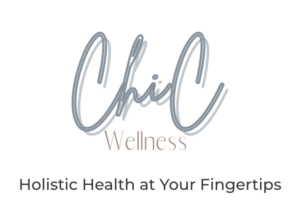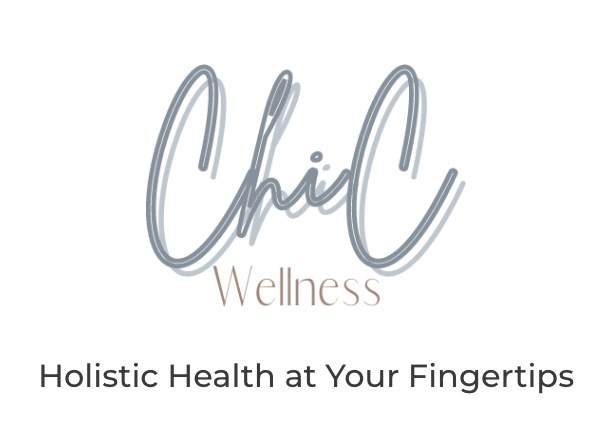Table of Contents
ToggleTable of Contents
Trauma is a complex and multifaceted experience that can have profound impacts on various aspects of our lives, including our physical health. The effects of trauma on the body can be far-reaching, with research indicating that trauma can have significant physiological and biochemical consequences. In this blog post, we will delve into the science of healing and explore how trauma impacts physical health. We will also discuss ways to recover from trauma, using five top keywords: trauma, physical health, healing, recovery, and science. Join us as we uncover the intricacies of trauma and its impact on the body, and learn about evidence-based approaches to promote healing and recovery.
Can trauma have an impact on physical health?
Trauma can have significant impacts on physical health, as it triggers a cascade of physiological responses in the body, including increased inflammation, altered immune function, and changes in stress hormones, which can lead to various health problems such as chronic pain, cardiovascular issues, gastrointestinal disorders, and sleep disturbances.
Does trauma affect overall well being?
Trauma can also impair overall well-being, including physical self-care, such as nutrition, exercise, and sleep, as individuals may struggle with disrupted routines, loss of appetite, or difficulties sleeping due to trauma-related symptoms.
Recovery from trauma involves addressing both the psychological and physical aspects of healing. Engaging in trauma-informed care, therapy, and self-care practices that focus on restoring a sense of safety, building healthy coping mechanisms, and improving emotional regulation can have positive effects on physical health outcomes.
What kind of activities benefits the healing process of trauma?
Incorporating physical activities, such as exercise, yoga, or other forms of movement, can be beneficial for trauma recovery, as it helps to regulate stress hormones, release tension, and improve overall physical well-being. Mind-body practices, such as mindfulness and meditation, can also help with managing trauma-related symptoms and promoting physical relaxation.
Seeking support from healthcare professionals, including physicians, therapists, and other allied health providers, can play a critical role in addressing trauma’s impact on physical health. Working with a trauma-informed care team can provide tailored interventions and support for individuals to recover from trauma and improve their physical health outcomes. Additionally, self-care practices, such as maintaining a healthy lifestyle, getting enough restorative sleep, and managing stress through healthy coping strategies, can also support physical healing from trauma.
how does acupuncture help me recover from trauma?
Acupuncture and the NADA (National Acupuncture Detoxification Association) protocol are alternative therapeutic approaches that have been shown to have potential benefits in healing trauma. Trauma, a complex condition that affects physical, emotional, and mental health, can be addressed through complementary and integrative therapies like acupuncture and the NADA protocol.
Acupuncture, an ancient Chinese medical practice that involves the insertion of fine needles into specific points on the body, has been found to positively impact trauma-related symptoms such as anxiety, depression, and stress. Acupuncture may help regulate the body’s energy flow, release tension, and promote relaxation, which can be particularly helpful in addressing the physical manifestations of trauma. NADA protocol, a specific form of acupuncture that focuses on five specific points in the outer ear, has been used as a supportive therapy in trauma recovery programs, and has shown promising results in reducing withdrawal symptoms, improving sleep, and alleviating stress.
By incorporating acupuncture and the NADA protocol into trauma recovery plans, individuals may benefit from these interventions as adjunctive therapies that address both the physical and emotional aspects of trauma. Acupuncture and the NADA protocol offer a holistic approach to healing trauma, using the body’s own healing mechanisms to promote recovery. Research suggests that these therapies may be effective in managing trauma-related symptoms and supporting overall well-being. With their non-pharmacological nature and potential for personalized treatment plans, acupuncture and the NADA protocol can be valuable additions to the toolkit of therapeutic options for individuals seeking healing and recovery from trauma.
Where is acupuncture seen in the treatment of trauma?
Acupuncturists Without Borders (AWB) is a non-profit organization that provides acupuncture services to underserved populations around the world, including those affected by trauma. One of the effective methods used by AWB is the NADA protocol.
AWB utilizes the NADA protocol as a complementary approach to help individuals heal from traumatic experiences. The NADA protocol has been shown to help regulate the autonomic nervous system, which can be dysregulated due to the impact of trauma. This can help individuals manage symptoms such as anxiety, insomnia, and hyper-arousal that are often associated with traumatic experiences. The NADA protocol is also known to promote relaxation, reduce stress, and support emotional well-being, which can be valuable in the healing process for individuals who have experienced trauma.
AWB has provided acupuncture and the NADA protocol to various populations affected by trauma, including survivors of natural disasters, war veterans, refugees, and individuals living in underserved communities. The organization has witnessed positive outcomes in terms of reduced anxiety, improved sleep, and increased resilience in individuals who have received acupuncture and the NADA protocol as part of their trauma recovery journey. However, it’s important to note that acupuncture and the NADA protocol should be used as part of a comprehensive trauma recovery plan, in consultation with qualified healthcare professionals, and in conjunction with other evidence-based therapies for optimal results.
Are essential oils effect for healing trauma?
The science of essential oils has gained attention in recent years as a potential complementary therapy for healing emotions and trauma. Essential oils are highly concentrated plant extracts that are known for their aromatic and therapeutic properties. Research suggests that certain essential oils may have the ability to impact mood, emotions, and the nervous system, making them a promising avenue for supporting emotional healing and trauma recovery.
Essential oils work through various mechanisms, including olfactory stimulation, chemical composition, and their ability to interact with receptors in the body. When inhaled or applied topically, essential oils can affect the limbic system, which is responsible for regulating emotions, memory, and stress responses. Some essential oils, such as lavender, bergamot, and chamomile, have been found to have calming and anti-anxiety properties, which may help individuals manage emotional distress related to trauma. Additionally, other essential oils like frankincense, rose, and ylang-ylang have been shown to promote relaxation, balance mood, and support emotional healing.
How can essential oils help me heal?
Essential oils are becoming increasingly popular as a way to improve mental health. The use of essential oils is known as aromatherapy, and it has been used for centuries to help people relax and reduce stress. From lavender oil to peppermint, there are many essential oils that have been found to have benefits for mental health. Let’s take a look at some of the ways that essential oils can improve your overall wellbeing.
Two ways essential oils can support the healing process of trauma
Improving Sleep Quality
Trauma can significantly impact an individual’s ability to sleep. The experience of trauma can trigger a range of emotional and physiological responses, including increased arousal, hyper-vigilance, and intrusive thoughts or memories. These symptoms can disrupt the normal sleep-wake cycle and interfere with the quality and quantity of sleep. For some individuals, trauma-related nightmares, night sweats, and flashbacks can also cause disruptions in sleep, leading to sleep disturbances and insomnia.
The relationship between trauma and sleep is complex and bidirectional. Poor sleep can also exacerbate the effects of trauma, as it can lead to increased irritability, fatigue, and difficulties in managing emotions, which can further impact an individual’s ability to cope with trauma-related stress. Moreover, chronic sleep disturbances can have negative consequences on physical health, cognitive function, and overall well-being.
Essential oils are also known to be effective at improving sleep quality. Many people struggle with insomnia or other sleep issues due to stress or overstimulation from our everyday lives. Studies have shown that inhaling certain essential oils before bed can help promote relaxation and encourage better sleep. Some of the best essential oils for sleep include lavender oil, cedarwood, clary sage, jasmine, marjoram, neroli oil, Roman chamomile oil, sandalwood oil, sweet orange oil and ylang-ylang.
Boosting Moods
Trauma can also significantly impact an individual’s mood and emotional well-being. The experience of trauma can lead to a wide range of emotional responses, including but not limited to anxiety, depression, anger, guilt, shame, and fear. These emotions may be overwhelming and persistent, and can significantly affect an individual’s mood, outlook on life, and ability to cope with daily challenges.
Trauma can disrupt the brain’s natural regulation of emotions, leading to mood swings, emotional numbness, or heightened emotional reactivity. Trauma-related memories, triggers, and reminders can also elicit intense emotional responses, leading to mood changes and emotional dysregulation. Additionally, the emotional impact of trauma can often manifest in physical symptoms such as headaches, stomachaches, and changes in appetite, which further contribute to mood disturbances.
In addition to reducing stress and improving sleep quality, essential oils can also be used to boost moods. Citrus scents such as lemon or orange are known for their energizing effects on the body while floral scents like rose or jasmine can bring feelings of joy or euphoria into your daily life. Aromatherapy has even been found to reduce symptoms of depression in some cases due to its ability to increase serotonin levels in the brain—the hormone responsible for regulating moods and emotions!
Using essential oils for mental health benefits is an ancient practice with modern research backing it up. Essential oils can reduce stress , anxiety , improve sleep quality , and boost your mood . Whether you prefer citrusy aromas or floral scents , there is an essential oil combination out there that will work perfectly for you ! Incorporating these natural remedies into your daily routine may just be the key to unlocking greater emotional balance.
trauma can have significant impacts on physical health, disrupting the body’s physiological systems and contributing to various health issues. However, there are effective ways to recover from trauma and support physical healing, and holistic approaches such as essential oils and acupuncture can be valuable tools in the healing process. Essential oils, known for their therapeutic properties, can help to calm and soothe the nervous system, reduce anxiety and stress, and support overall well-being. Acupuncture, an ancient Chinese medicine technique, can regulate the nervous system, improve circulation, and promote relaxation, providing relief from symptoms of trauma.
By integrating holistic approaches like essential oils and acupuncture into a comprehensive recovery plan, individuals can support their physical health alongside emotional, mental, and spiritual well-being. It’s important to consult with qualified professionals and develop a personalized approach that meets the unique needs of each individual’s healing journey. Chicwellness.org is dedicated to providing evidence-based information and resources for holistic healing, including essential oils, acupuncture, and other natural methods. We believe that a holistic approach to healing trauma can lead to optimal well-being, and we encourage individuals to explore our website for expert insights and practical tips on their path to recovery.


